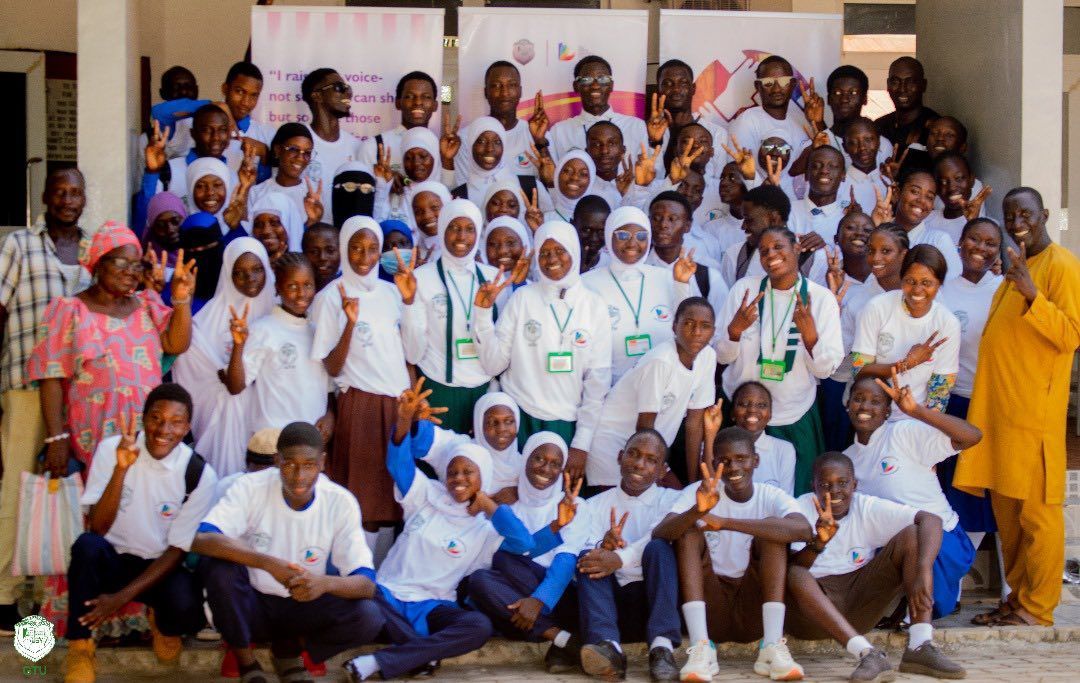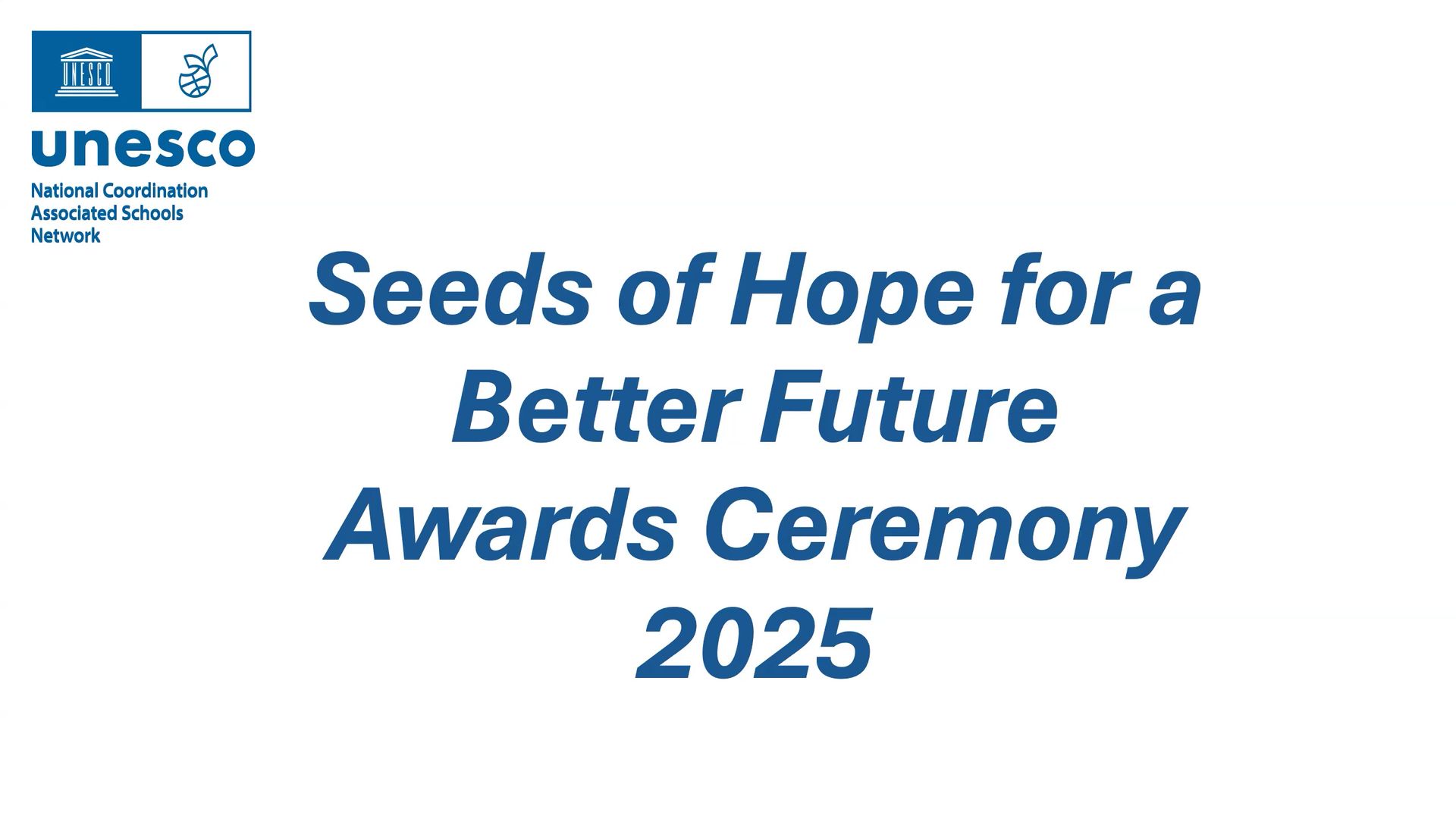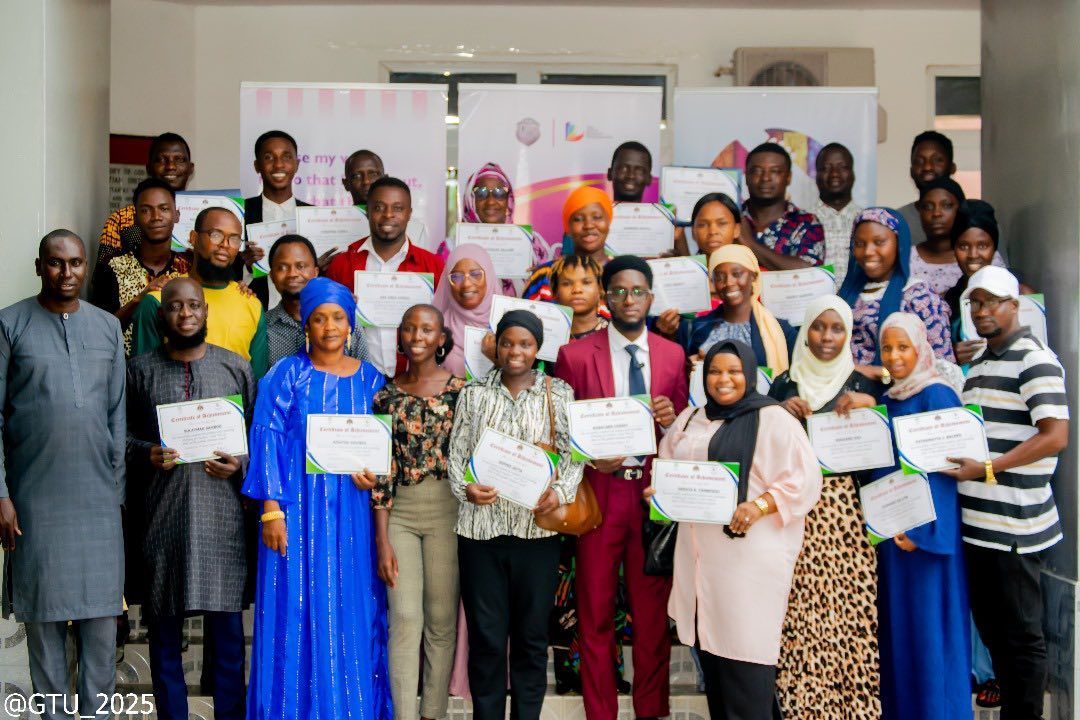Let’s Transform Our World For The Better
Audrey Osler is Professor of Citizenship and Human Rights Education, University of Leeds, UK and University or South-Eastern Norway.
I specialise in education for citizenship and human rights,
in both established democracies and post-conflict societies.
This has led me to diverse places and regions, including sub-
Saharan Africa; Aceh, Indonesia; Iraq-Kurdistan; and, most
recently, Sri Lanka. Experience confirms my belief that education
is key to the realisation of human rights and gender equality.
UN Sustainable Development Goal 4, quality education, is
central to the wider sustainability agenda. Without appropriate
education many of the other goals are effectively non-starters.
The Sustainable Development Goals, agreed in 2015, are a set of
aspirations with concrete targets. The first step in realising their
ambitious agenda is to hold our governments to account. It’s
important to remember that they are not legally binding. They
form an ambitious agenda to transform our world for the better by
2030. They are only likely to be realised if we, as citizens, working
with others, including elected representatives, ensure our
government and political leaders are held accountable both for
these promises and for legally binding human rights obligations.
A second step in realising SDG 4 is to prompt an in-depth
discussion about the meaning of an inclusive and equitable
quality education. Much is made of the need to ensure adequate
resources and teacher education. Clearly these are essential.
But we also need to debate the aims and content of education.
The near-universally ratified Convention on the Rights of the
Child, along with the International Covenant on Economic,
Social and Cultural Rights, spell out the basis for a quality
education. These agreed international standards propose
curriculum aims. These include development of respect for
human rights and fundamental freedoms, and for the principles
enshrined in the Charter of the United Nations; respect for
the child’s cultural identity, language and values and other
cultures and civilizations. A quality education must necessarily
include human rights education and intercultural education.
Equally, the curriculum should equip the learner with the skills
to participate in society ‘in the spirit of understanding, peace,
tolerance, equality of sexes, and friendship among all peoples’,
and ensure social and environmental sustainability.
Some may question this agenda, arguing that universal primary
education must, in the first instance, promote literacy and
numeracy. Yet this isn’t an either/or choice. We are living in
dangerous times, with increased authoritarianism across the
globe; a global climate emergency; and an increasing tendency
for governments to deride international institutions, undermine
democratic processes, avoid journalistic scrutiny, overlook
human rights standards, and play to populist agendas that
promote blind nationalism and xenophobia. The curriculum
knowledge and skills outlined here are more necessary than
ever, if we are to avoid global conflict.
A third step is to foster global solidarity and a stronger
cosmopolitan outlook, not just among young learners but
all citizens, including teachers. Even wealthy countries
need international support and solidarity to address crises,
as illustrated by the international response to Australia’s
devastating bush fires in 2019-20. Those who have lived
under repressive regimes are often most acutely aware of
the need for cosmopolitanism.
The artist C sar Manrique,
who lived in Franco’s Spain, expressed this provocatively: ‘I
believe in humankind as a totality. I don’t believe in religion,
or in borders, or in nationalities, or in flags.’ He went on to say: 'We live on this planet for such a short space of time that
each one of our steps should lead towards building the
dreamed space of utopia more and more. Let us build
it together. That is the only way of making it come true.'
Citizenship action for government accountability, a deep
discussion about a quality curriculum, together with a utopian
cosmopolitan vision, offer a pathway towards greater social
justice through education.
From Engage issue 20.
AUDREY OSLER • December 8, 2021

In our continued commitment to ensuring quality and inclusive education for every child, we’ve taken our advocacy to a new level by empowering the next generation to lead the conversation. In partnership with The Gambia Teachers Union, we recently convened the Foundation’s Young Ambassadors for a vibrant day of engagement dedicated to promoting the right to education for all. The event brought together passionate students from selected senior secondary schools across Region One, including St. John’s School for the Deaf, to explore what it truly means to make education inclusive, equitable, and accessible to every learner.

The Steve Sinnott Foundation is proud to celebrate the inspirational winners of the 2025 Seeds of Hope for a Better Future competition, a global initiative supported by UNESCO that brings together creativity, community, and a shared commitment to peace and sustainability. This unique project invited schools across the world from nursery and primary through to secondary and high school to explore the values of peace, cultural understanding, and care for the planet. In the face of climate change, young people were asked to tell their stories through art, performance, and digital creativity, highlighting how small seeds of action can grow into powerful movements for hope. The results have been extraordinary. Schools in France, the UK, Gambia, Haiti, and Kenya have been recognised for their outstanding contributions, with projects ranging from community gardens and sculptures to dance performances and illustrated stories. Each winner has shown how young voices and imagination can nurture peace and sustainability in ways that inspire us all. The full Awards Ceremony can be watched linked here: S eeds of Hope For A Better Future Awards Ceremony 2025 Highlights from the Winners Oak View Primary and Nursery School (UK) created Faces of Feeling, a collection of joyful sculptures already exhibited in a local gallery. Judges praised their work as supporting the wellbeing of others and embodying the idea of children as true “Seeds of Hope.” St Joseph’s Senior Secondary School (Gambia) painted Campaign for a Sustainable Banjul , reflecting real-world climate action in their city. The judges described it as “a most deserving and robust winner.” In France , the Jardin d'Enfants des Nations Unies (United Nations Nursery School) won hearts with Wind of Peace , where 5-6 year olds combined drawings, paintings, and tree planting to champion reforestation. Lyng Hall Secondary School, Coventry (UK) collaborated with Henley Green Primary and the UK Literacy Association to produce The Heart Shaped Hole – an innovative and metaphorical take on Seeds of Hope. Earlsdon Primary School, Coventry (UK) impressed with Primary Plot , a project that included gardening with the visually impaired, reflecting inclusivity and sustainability. A remarkable cross-collaboration between 21 schools across West Yorkshire, Essex, and Tower Hamlets (UK) resulted in Lights, Camera, Score , an ambitious combination of animation, music, and storytelling. CIMA Community School of Hope, Haiti shared Konbit - a video of dance and solidarity, inspiring villages to work together for peace and dignity. Daraja Academy, Kenya presented an ambitious and optimistic project integrating sustainability into everyday school life. Celebrating Creativity and Peace This year’s competition was judged by an impressive panel of artists, writers, and cultural leaders including Sir Antony Gormley, Edmund de Waal, Dame Liz Forgan, Hugh Quarshie, and Rathna Ramanathan. Their collective expertise highlighted the quality and depth of the entries, each of which showed how art can be a powerful tool for global understanding and change. The Seeds of Hope initiative is part of UNESCO UK’s Arts and Culture for Peace programme, first launched in 2022. It has grown from earlier collaborations such as the Coventry Young Ambassadors’ Islands of Peace Japanese Garden , opened in 2021 a living reminder that seeds planted in communities can continue to flourish. Highlights from the ceremony can be found here at this playlist Looking Ahead As Ann Beatty, UNESCO ASPnet UK National Coordinator , shared: “The quality of entries was extraordinary. We are delighted at the response to this amazing initiative in collaboration with our international partners.” And in the words of judge Jannette Cheong : “Young people around the world understand well the value of peace and tolerant relationships between cultures. Their creativity is an inspiration to all of us.” At The Steve Sinnott Foundation, we believe that education is the seed from which hope grows. The Seeds of Hope competition is a shining example of how young people through creativity, compassion, and collaboration are already shaping a more peaceful and sustainable future. You can access the full online awards presentation here: Seeds of Hope For A Better Future Awards Ceremony 2025

The journey to strengthen the well-being and success of learners in The Gambia continues with a renewed commitment to guidance and counselling in schools. By August 14th 2025, we have successfully trained 140 educators across 𝐑𝐞𝐠𝐢𝐨𝐧𝐬 𝟏, 𝟐, 𝟑 & 𝟒 under our Guidance & Counselling Programme. A programme designed to equip educators with the skills to support students’ academic, social, and emotional development. Region 3 Teachers Complete Level 2 Training On Wednesday, 6th August, thirty teachers from Region 3 (North Bank Region) began a three-day Level 2 Guidance and Counselling training at the Christian Council in Kanifing. This programme built on their earlier Level 1 training in Farafenni, with a focus on deepening their capacity to serve as school-based counsellors. The training concluded with a certificate presentation ceremony, recognising the teachers’ commitment and marking an important step in their professional development. These certificates symbolize more than an achievement; they represent each teacher’s readiness to provide psychosocial support, guidance, and mentorship to learners across their schools.

